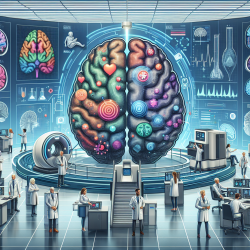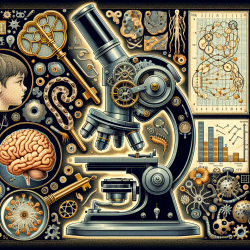Alzheimer's disease (AD) presents significant challenges in treatment, particularly with interventions like repetitive transcranial magnetic stimulation (rTMS). As a non-invasive therapy, rTMS has shown promise in improving cognitive function in AD patients. However, its efficacy varies widely among individuals. Recent research has explored whether baseline MRI data can predict patient responses to rTMS, offering a potential pathway to more personalized treatment approaches.
The Study: An Overview
The pilot study titled "Can Brain Volume-Driven Characteristic Features Predict the Response of Alzheimer’s Patients to Repetitive Transcranial Magnetic Stimulation?" investigates the potential of using MRI data to forecast the effectiveness of rTMS in treating mild-to-moderate AD. The study analyzed whole-brain T1-weighted MRI scans of 75 participants, focusing on the gray matter (GM) and white matter (WM) of the dorsolateral prefrontal cortex (DLPFC), a common target for rTMS.
Key Findings
- GM Volume and Asymmetry: Responders to rTMS had significantly lower baseline GM volume in the right DLPFC and higher GM asymmetry compared to non-responders.
- Predictive Accuracy: Logistic regression analysis using these MRI-driven features achieved a mean accuracy of 0.69 in distinguishing responders from non-responders.
- Cognitive Correlation: A significant correlation was observed between baseline cognitive scores and GM volume in the DLPFC, suggesting that lower GM volumes are associated with greater cognitive impairment.
Implications for Practitioners
This study highlights the potential of MRI as a tool for predicting rTMS treatment outcomes in AD patients. By identifying MRI-driven features that correlate with treatment response, practitioners can better tailor interventions to individual patients. This approach could lead to more effective use of rTMS, optimizing resource allocation and improving patient outcomes.
Encouraging Further Research
While the findings are promising, they underscore the need for further research with larger sample sizes and additional data points. Future studies could explore other brain regions or incorporate advanced imaging techniques to enhance predictive accuracy. Practitioners are encouraged to stay informed about ongoing research and consider participating in collaborative studies to advance this field.
Conclusion
The ability to predict rTMS efficacy using baseline MRI data represents a significant step forward in personalized medicine for Alzheimer's disease. As research progresses, integrating these insights into clinical practice could revolutionize treatment strategies, offering hope for more effective management of this challenging condition.
To read the original research paper, please follow this link: Can Brain Volume-Driven Characteristic Features Predict the Response of Alzheimer’s Patients to Repetitive Transcranial Magnetic Stimulation? A Pilot Study.










